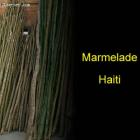ADVERTISEMENT
business - Haiti Observer Blog
business, Haiti Observer Blog. Read the following articles about business
Small and Mid-Size Business Potential to Stimulate Haitian Economy
Pan American Development Foundation (PADF) and Haitian Hometown Association Resource Group (HHTARG) are presenting a forum, "Investing in Haitian Progress", at a total of nine cities in America, Canada, the Dominican Republic, and New York City, its first stop. The United States Agency for International Development (USAID) is funding the project, offering small and medium enterprise (SME) businesses matching grants from $50,000 to $200,000 for innovative business plans. The goal is to support development of SMEs to increase employment in Haiti.
Speakers at the forum will talk about private investment in Haiti, potential stakeholders, finance, program administrators, and investment bodies like Inter-American Bank that partner with the government of Haiti to support SMEs.
Haiti, the fifth-largest importer of American rice
Haiti is experiencing an imminent food crisis, which has at its core the destruction of rice farming. The agricultural sector of Haiti, made up of subsistence farmers, cannot compete in an international market overrun with poor quality imports, especially rice, Haiti's number one staple.
Back in the 1970s, rice cultivation was a thriving industry, requiring no foreign imports to meet domestic needs. But that changed at the start of the 1990s. An attempted coup against then-President Aristide set off global trade embargos, stifling Haiti's export market. At this juncture, cheap imports from abroad came in droves. Haiti, a desperately poor country, has needed development banks' aid. They drove a hard bargain, enforcing a lower import tariff, from 50% to 3%. This negatively impacted the economy, because it became more affordable to import U.S. rice than to farm it domestically.
Retired NBA Basketball Players Persuaded to Invest in Haiti
In a persistent effort to attract private investment for the reconstruction of Haiti, post the 2010 earthquake, Prime Minister (PM), Laurent Lamothe, and President of Haiti, Michel Martelly, hosted the Philanthropic Summit on 3/09/2013.
Martelly and Lamothe spoke at the glamorous event at the Miami Ritz Carlton Hotel Coconut Grove, arranged by the National Basketball Retired Players Association (NBRPA). Lamothe gave the keynote address to a roomful of potential investors, among them retired NBA Hall of Famers Glen Rice, Penny Hardaway, and Haitian-American Olden Polynice, Haiti's newly-named goodwill ambassador.
Lamothe stressed the government of Haiti's actualization of the 5E Initiative (Education, Rule of Law, Energy, Employment, and Environment), particularly education. He claimed that more than a million children under the Universal Schooling Program Free and Compulsory have been attending school, but more funding is needed to continue the 5E program.
After Slave Revolution, Haiti now needs Business Revolution
Haiti is today standing at the crossroads. One path leads to complete humiliation and dependence on foreign countries and the other is of economic independence and sustainable growth. Several factors will together determine the fate of Haiti in the long run. Let us take a quick look at the aspects that can lead to development of Haitian economy.
• Haiti requires entrepreneurial revolution and for that the first step will be to build roads, improve electrical grids and develop other national infrastructure. Simultaneously, Haitians should be trained to maintain these new developments. Once the infrastructure is developed, the path for private investment opens up. This basic framework development is possible only with foreign aid. Haitian government on the other hand has to work closely with foreign investors and accept strict foreign vigilance at initial stages and prove that it is capable of managing FDI with minimum impact of corruption. The strict vigilance will gradually decrease and the government will have more flexibility to manage FDI that suits Haiti's needs.
US Program Failed To Award Loans to Intended Targets in Haiti
U.S. Agency for International Department (USAID) started a program that aimed towards boosting up the economy of Haiti through targeted loans to Haitian business units. It has been found in an audit that program failed as the intended targets did not receive the loans, workers were not trained properly and there was no systematic record maintenance. The Office of Inspector General of USAID released the audit report towards the end of February. The aim of this audit was to find out whether areas like waste management, handicrafts, tourism, construction and agriculture were benefited through the promotion of lending practices.
SONAPI, Bernard Schettini replaces Georges Barreau Sassine
Minister of Commerce and Industry, Mr. Wilson Laleau, attended the ceremony of the installation of SONAPI's new Director General, that was held at the headquarters of SONAPI (National Society of Industrial Parks) located at the Metropolitan Industrial Park. Mr. Bernard Schettini was appointed as the new Director General in place of Mr. Georges Barreau Sassine. Honorary Minister of Commerce and Industry, Mr. Wilson Laleau presented a speech during the installation ceremony in which he said that SONAPI is the institution that should be regulating, promoting and looking after the development of industrial parks throughout Haiti.
Start a Business in Haiti, Regulatory Environment
Doing a business in Haiti involves a set of laws and regulations. Starting a business is not something that can be done instantly as it requires permits, planning and processes. However, because Haiti wants to make opening a business in the country easier and more efficient, the authorities have made some changes in the country's regulatory system. This way, businessmen might fast-track the opening of a business while making sure that all regulations are followed.
One of the changes involves the publication of Articles of Incorporation (AOI). Currently, such publication can be done two months earlier than usual because the office of the prime minister or the president no longer has to vet the AOI. A new law, on the other hand, has been implemented to improve the application for credit in the country. The new law enables businesses to use a wider variety of assets for collateral.
Impact of Second-hand clothing market On Haiti
The Second hand Clothe market in Haiti is where people can buy second-hand yet branded clothes from the United States at a cheaper price. Also called Pepe, many Haitians prefer use clothes because not only it is more affordable but also it is stylish, modern and has a high quality. Though the demand for pepe products is high, not everyone is happy with it. There are businessmen seeking to ban the import of second-hand clothes from the United States, saying that the trade is hurting other industries and making Haiti a "trash can."
Incorporating a business in Haiti
Business incorporation in Haiti comes in different types. It has categories and each one has its own standards and regulations to follow. Each company starting a business in the country must register its operation and determine which type of business incorporation it will undertake. To know more about it, here are the types of business incorporation in the country.
Limited Liability Corporation in Haiti involves three shareholder partners and board members. However, at least one of the board members must be a Haitian citizen to make it an eligible business. When it comes to obligations, each partner has a role to play depending on its contributions. Branch of a Foreign Public Limited Company, on the other hand, is a type of business incorporation that must be registered at Haiti's Book of Commerce. It should also be filed at other government business agencies involving the fiscal and social sectors.
Business and Labor Regulation in Haiti
With a new approach to new businesses, the Haitian government hopes that doing business in the country will be easier and more efficient. The government has been taking steps in adjusting the country's business system with a new proactive approach. It aims to help smooth out the process of starting a business in Haiti, as well as attract more investors to boost the economy. Unnecessary bureaucratic requirements that prolong the process of doing a business will also be scrapped with the new approach.
This approach applies to industrial and commercial companies that employ a maximum of 50 workers. The companies that have a capital that is 10 times Haiti's per-capita gross national income are the ones covered in this approach.
Our objective is to share with you news and information about Haiti and the people of Haiti. Traditions, habits and the way we were or grew are alive in this site. We highly recommend that you Subscribe to our Newsletter and also share with us some of the things that are memorable and made us unique people.

 Marmelade, Haiti
Marmelade, Haiti  Life After Death
Life After Death  Haiti tech Summit
Haiti tech Summit  La Chapelle, Haiti
La Chapelle, Haiti  Haitians are a Proud People
Haitians are a Proud People